The number-one killer
Heart disease is the leading cause of death for millions of Americans every year. But shockingly, misinformation about how to properly care for our most vital organ is everywhere. We spoke to top cardiologists at the nation’s leading medical centers and hospitals to set the record straight. Here are the myths they’d like to dispel once and for all.

Myth: The main symptom is chest pain
“Movies and TV shows often show dramatic portrayals of people clutching their chests, but heart attacks don’t always show up that way. And women, in particular, are more likely to experience atypical symptoms. Approximately 40 percent of women will report jaw or shoulder discomfort, sweating, indigestion, or nausea—yet no chest pain or pressure.”—Amy Pollak, MD, a cardiologist at Mayo Clinic in Jacksonville, Florida
These are the 8 sneaky signs of heart disease that women miss.
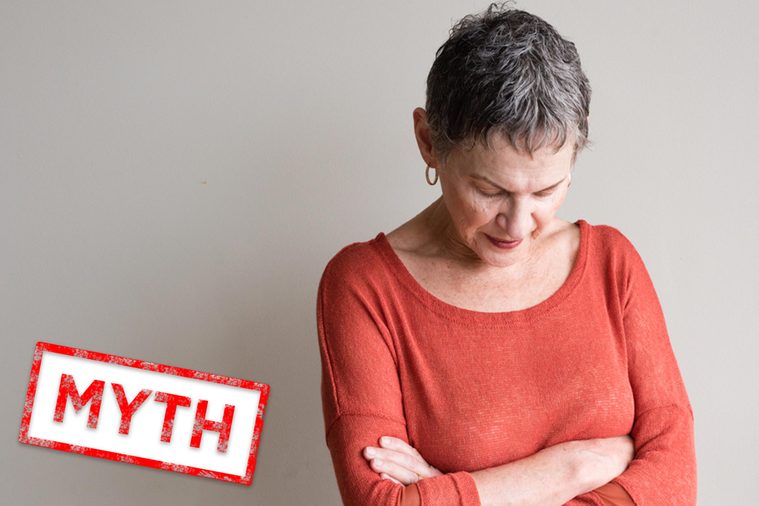
Myth: Women don’t have to worry as much as men
“Heart disease disproportionately affects men, but it remains the leading cause of death for both men and women in this country. Women tend to think breast cancer has the highest mortality rate when, in fact, they are 13 times more likely to die of cardiovascular disease than breast cancer.”—Karol Watson, MD, PhD, director of the Barbra Streisand Women’s Heart Health Program at the University of California, Los Angeles
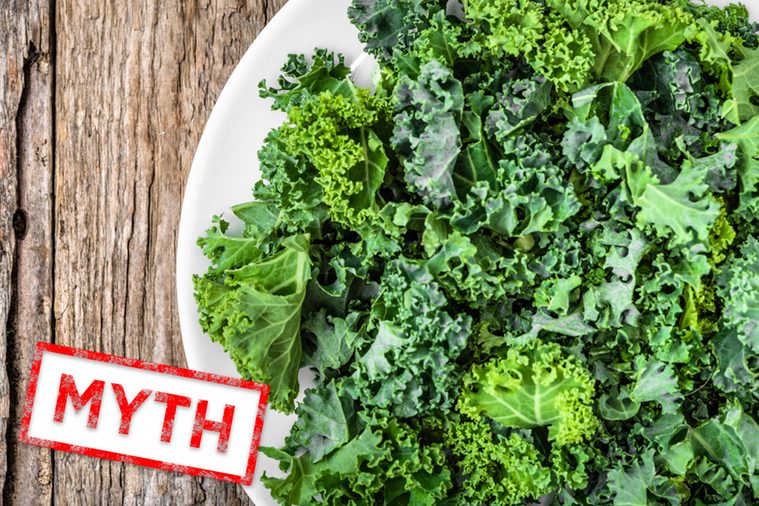
Myth: A low-fat diet is healthiest for your heart
“It’s true that at one point, experts believed dietary fat was responsible for heart disease. But we now know that fat has many benefits, including helping us feel full and aiding the absorption of certain vitamins. And not all fats are the same. The fats found in foods like salmon, walnuts, and avocados are very heart-healthy and can actually reduce your risk of having a heart attack. You should still try to limit your intake of fat from dairy, red meat, fried foods, as well as trans fats, which are mostly found in processed foods.”—Dr. Pollak
Check out the 30 ways you can really reduce your risk of heart attack and stroke.
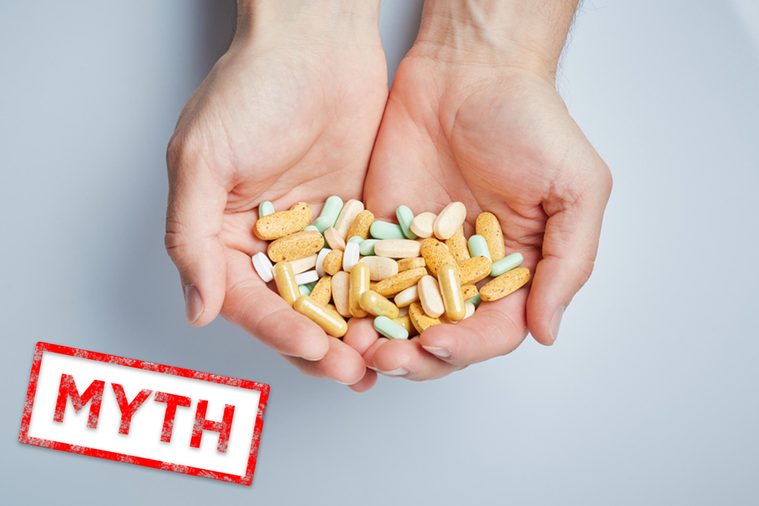
Myth: Taking prescriptions medications will fix your heart
“There are drugs that can lower your blood pressure and cholesterol, but without lifestyle changes like regular physical activity and eating a heart-healthy diet, they can only do so much. Heart disease is a serious condition, and the right lifestyle changes can maximize whatever benefit you get from a drug. Too often, people think popping a bill means they can eat whatever they want and avoid exercise. That’s not the case at all.”—Erin D. Michos, MD, associate director of preventive cardiology at Johns Hopkins School of Medicine in Baltimore
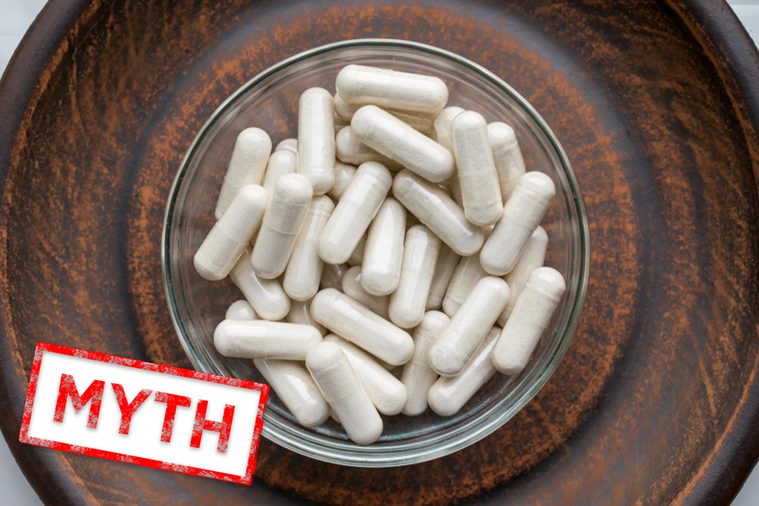
Myth: Supplements can help prevent heart disease
“The diet and supplement market in America is 100 percent unregulated and has been since 1993. Many make claims that are in no way substantiated by science, and some [supplements] can even negatively interact with prescription medications, or be toxic in large amounts. If you’re going to take anything not prescribed by a doctor, it’s a good idea to run it by your healthcare provider first.”—Steven Nissen, MD, chairman of the Department of Cardiovascular Medicine at Cleveland Clinic in Ohio
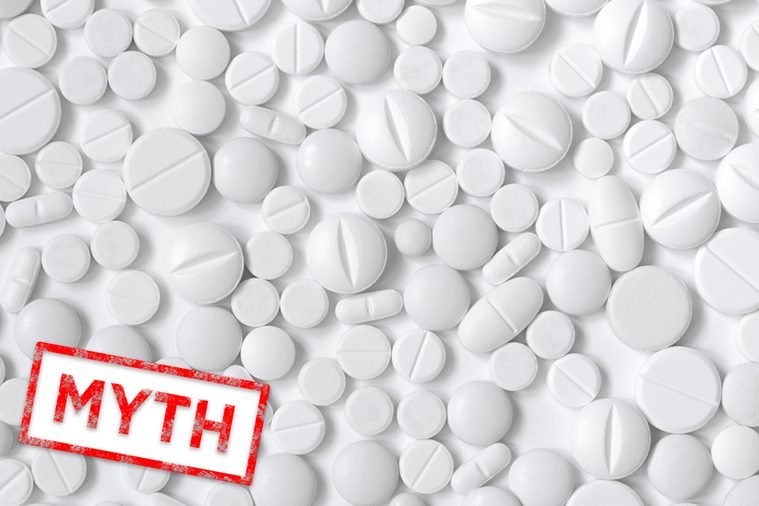
Myth: A daily aspirin can prevent heart disease
“Men used to get this advice when they reached a certain age, but research has since cast doubt on how effective of a treatment this practice actually is. Unless you already have heart disease, taking aspirin every day is not recommended (and even if you do have heart disease, you should discuss this with your healthcare provider first).”—Dr. Nissen
These are the 5 heart tests that can save your life.

Myth: Only aerobic exercise will benefit your heart
“Exercise is essential for heart health even if—a recent study found—you are genetically predisposed to develop cardiovascular disease. Remember, the heart is a muscle and like all muscles, it requires exercise for optimal health. While exercises that get the heart pumping, commonly called cardio exercises, are essential, resistance exercises are also important as we age to maintain muscle mass. The bottom line is: Just keep moving!”—Dr. Watson

Myth: The Paleo diet is heart healthy
“Although this meat-loving diet has gotten popular in recent years, there are no long-term studies showing it to be heart healthy. In fact, there are many reasons to worry that it may be harmful to the heart since it tends to be higher in saturated fat and meat, and deficient in healthy fats and healthy carbs. Don’t forget that the Paleolithic man only lived to be about 40 years old.”—Dr. Watson
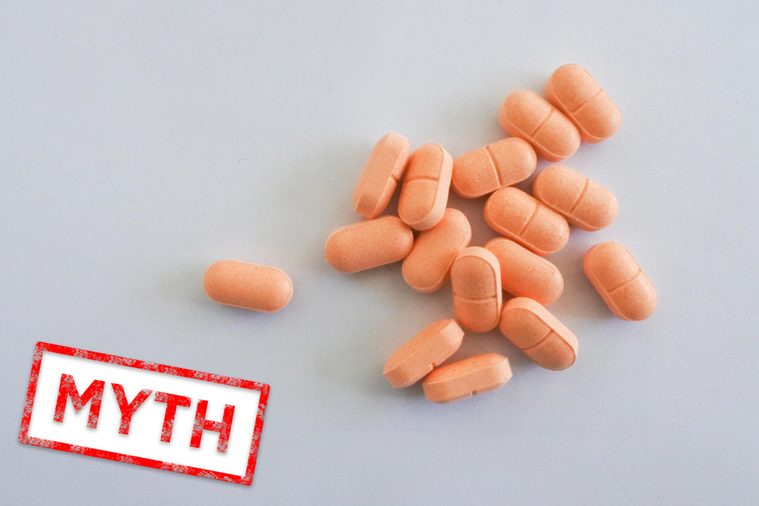
Myth: Statins cause type 2 diabetes
“Statins are a kind of prescription medication commonly used to treat cardiovascular disease. While they do not trigger diabetes, they may reveal it in people who are teetering on the border of a diagnosis, since statins can raise blood sugar by two or three points. But that’s no reason to avoid heart-healthy medication: Studies have shown people at risk for heart disease who receive a statin have significantly fewer cardiovascular events regardless of whether they develop diabetes or not.”—Dr. Watson
Are statins good or bad? Here’s a cardiologist’s guide to smart statin use.

Myth: If you have a family history, you’ll get heart disease
“There’s no discounting that genetics do play an important role in determining what diseases a person will get, including heart disease. But your genetics are not necessarily your destiny. Studies have shown that people who inherit genes that put them at risk of heart disease but live an optimal lifestyle (no smoking, healthy diet, frequent exercise, and healthy weight) actually may have lower heart disease rates than people who inherit good genes but live a lousy lifestyle.”—Dr. Michos
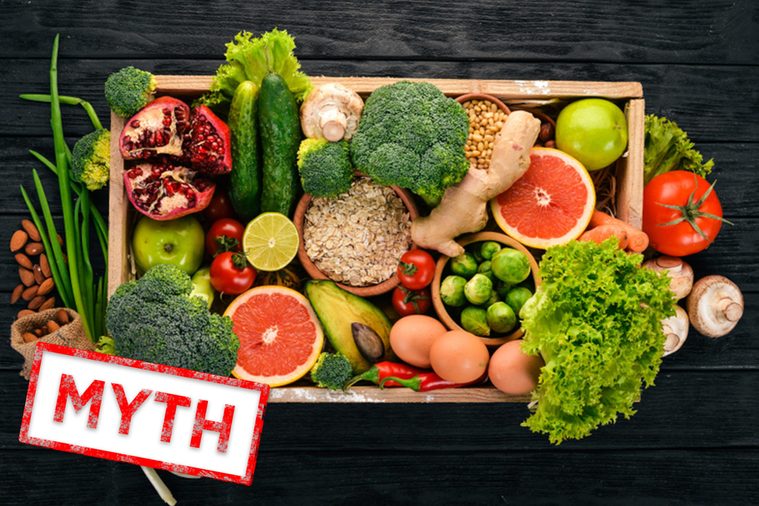
Myth: Vegetarians don’t get heart disease
“There’s been a lot of hype around ‘plant-based’ diets, and with good reason. Eating a diet that’s low in animal sources of protein and fat and high in produce has been linked to lower risks of cardiovascular disease. But not all meatless diets are healthy. You can avoid meat and still load up on refined grains, simple starchy carbs, sugar-sweetened beverages, and dairy—and increase your risk of disease including heart disease. A 2018 study published in the Journal of American College of Cardiology, found that a plant-based diet that was healthy (consisting of fruits, vegetables, nuts, legumes, and whole grains) was linked to lower risk of heart attacks, where a less healthy plant-based diet (consisting of more juices and sweetened beverages, potatoes and fries, sweets, and refined grains) was not. —Dr. Michos
Check out these 15 life-saving tips for preventing heart disease.
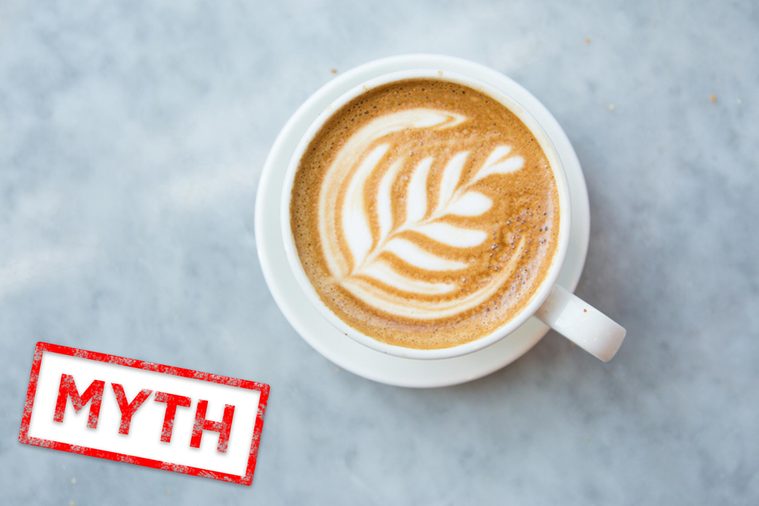
Myth: Caffeine is bad for your heart
“This popular (and legal) drug temporarily speeds up your heart rate, but when consumed in regular amounts, is completely safe and may even be good for your heart. A review published in the journal JACC: Electrophysiology found that ingesting up to 300 milligrams of caffeine a day appeared safe, and may even protect against heart rhythm disorders. While energy drinks and sugar-sweetened beverages are best avoided, coffee and tea appear safe based on large-scale, population-based studies and randomized clinical trials. For most patients, even those with a history of prior arrhythmia, there is no need to avoid caffeinated beverages.”—Dr. Michos
Drinking 300 milligrams of caffeine a day is equivalent to about three cups. Here’s a breakdown of your favorite sources of caffeine.

Myth: Don’t worry about your heart until you’re older
“It’s true that age is one of the biggest risk factors for developing a heart attack or stroke. But that’s primarily because the disease takes years to develop. Treatment and intervention need to happen much, much sooner. Studies have found that even 10-year olds have evidence of plaque developing in their arteries. The sooner you start adopting healthy habits, the better.”—Salim Virani, MD, a professor in Cardiology and Cardiovascular Research Sections at Baylor College of Medicine in Houston, Texas

Myth: Always take it easy after a heart attack
“Too often, heart patients use their condition as an excuse to cut back on physical activity when they should be doing the opposite. One of the proven ways to reduce mortality after a cardiac event is cardiac rehab, a good portion of which involves regular exercise. The general recommendation for anyone, heart patient or not, is 20 to 30 minutes of moderate physical activity five to six days a week. And that’s a baseline—the benefits increase as you exceed that amount. Obviously, if you aren’t used to strenuous physical activity, discuss how to build up to it with your healthcare provider. But get moving—some studies show following those recommendations could add two to three extra years onto your life, not to mention improve the quality of it.”—Dr. Virani
Here are 11 tests for heart disease you never knew you needed.
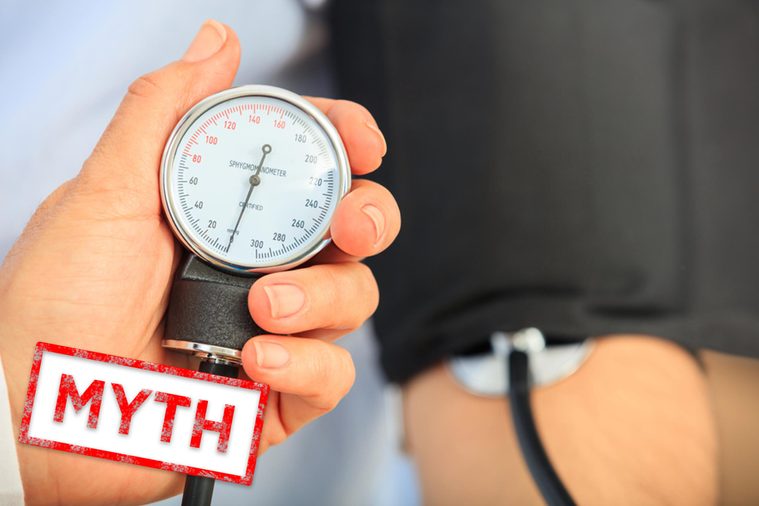
Myth: I have normal blood pressure, so salt isn’t a worry
“First, you might want to get your blood pressure checked because it can be high without showing any symptoms—that’s why it’s known as ‘the silent killer.’ And even for people who don’t have high blood pressure, less sodium will significantly blunt the rise in blood pressure that occurs as we age. And as an important bonus, it will also reduce the risk of developing other conditions, like kidney disease, which are also associated with eating too much sodium.”—Nieca Goldberg, MD, cardiologist and medical director for the Joan H. Tisch Center for Women’s Health at NYU’s Langone Medical Center in New York City
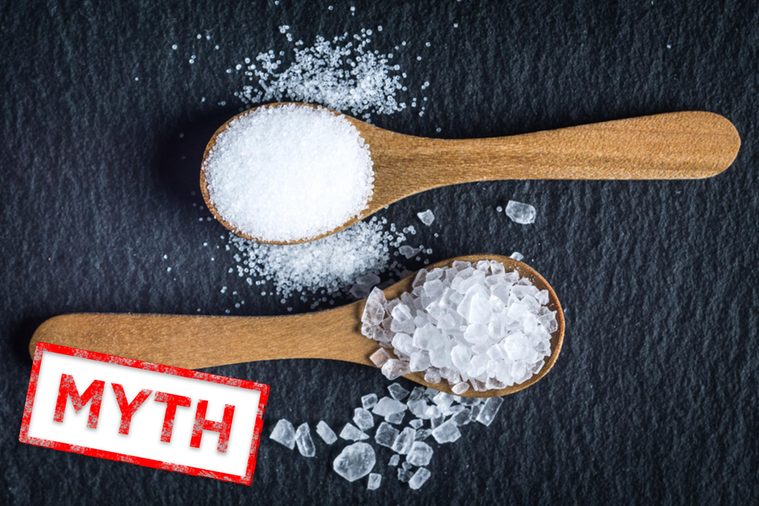
Myth: I don’t salt my food so I don’t eat too much sodium
“The majority of sodium in our diet is added before it hits our table. More than 70 percent of the sodium we consume comes from processed and restaurant foods, not a shaker. And some of them don’t even taste salty to us. Read labels whenever possible and try to eat as many whole, fresh, unprocessed foods as possible.—Dr. Goldberg
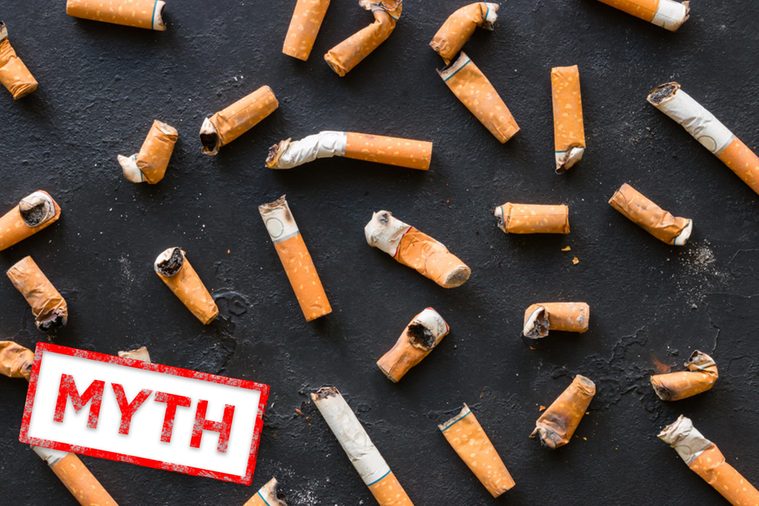
Myth: If you’ve smoked for years, quitting won’t help your heart
“A full third of deaths from cardiovascular disease can be attributed to smoking, according to the Centers for Disease Control, and the more you smoke, the more your risk increases. The reason: Smoking damages the heart and blood vessels—no matter what kind of cigarette, and even a few a day. Now, the good news: That damage is rapidly repaired when you quit smoking. Within a year of being cigarette-free, the risk of having a heart attack drops dramatically, and within five years, most smokers lower their stroke risk to nearly that of a nonsmoker. That’s incentive to quit!”—Seth J. Baum, MD, past president of the American Society for Preventive Cardiology and founder and chief medical officer of Excel Medical Clinical Trials, LLC in Boca Raton, Florida
Here are 8 ways to lower stress and help prevent heart disease.
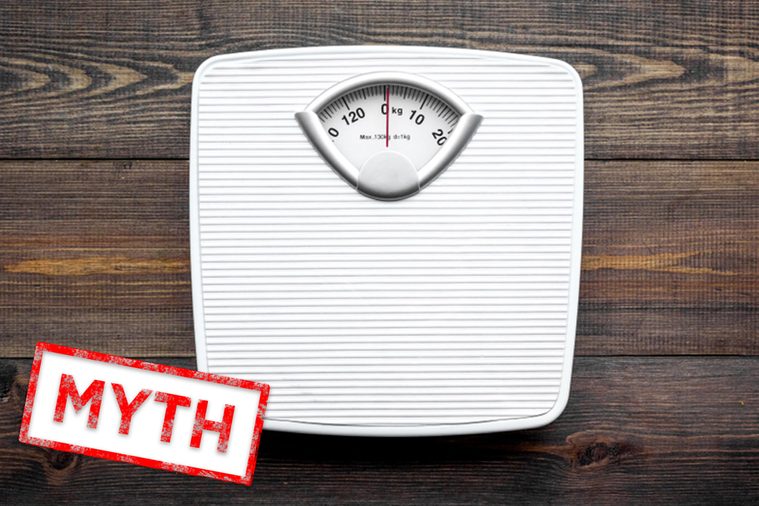
Myth: A little extra weight won’t hurt if I’m in shape
“This idea may have gained traction because of research that found an association between people with higher body weight and a decreased risk of heart attack. But an association doesn’t mean cause and effect. And in fact, a recent study found that extra pounds upped the risk of a cardiac event by 28 percent, even in otherwise healthy individuals.”—Dr. Baum

Myth: Heart disease is a death sentence
“People live for decades with heart disease. We’ve made a lot of progress. When I started out, half of all Americans smoked. Now, that number is down to 15 percent. Technology has advanced, giving us better medications to control cholesterol and blood pressure. It’s largely a preventable disease if you stay active and eat a reasonably healthy diet.”—Dr. Nissen
Check out the 5 heart disease risk factors you may not know about.